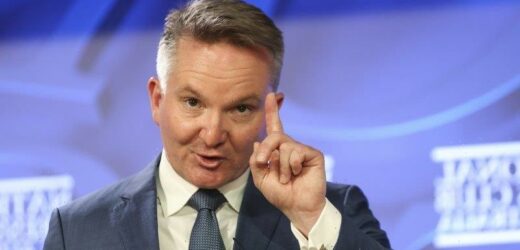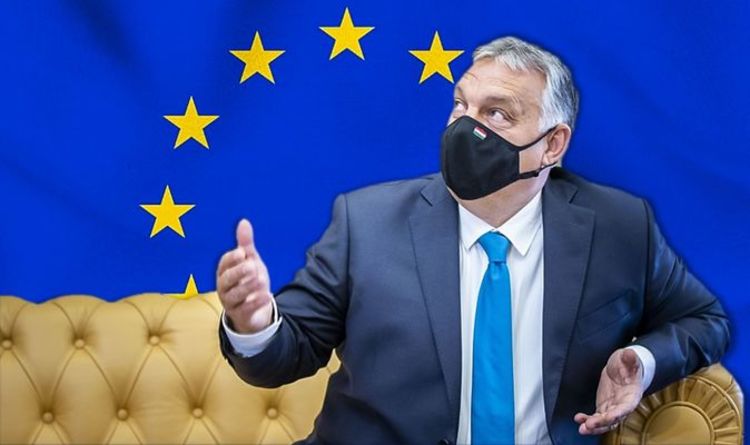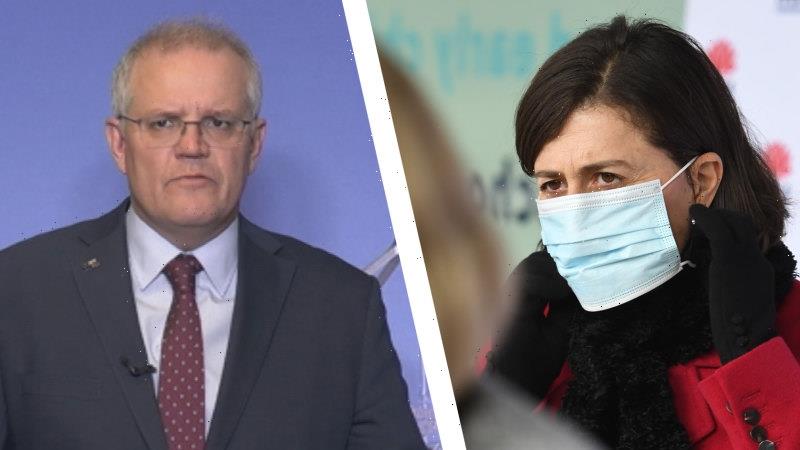Some of the nation’s most carbon-intensive businesses are opening the door to Labor’s plan to force major industrial polluting facilities to reduce their carbon footprint, as environmental groups criticise the party for failing to pledge more action to reduce global warming.
Labor has pledged to reduce Australia’s carbon pollution by 43 per cent over the next decade, starting from 2005 level of emissions, which is 8 per cent higher than the federal government’s 2030 projected reductions under its technology road map policy.
Labor climate change and energy spokesman Chris Bowen addresses the National Press Club in Canberra on Monday. Credit:Alex Ellinghausen.
The opposition is banking on a massive rollout of renewable energy to drive down emissions from the energy sector and, most controversially, it will impose pollution limits on the 215 largest polluting facilities and tighten them over time, to drive down the nation’s global warming contribution.
Peak groups representing industries that feature heavily on the polluter list, including aluminium, coal-fired power generation, cement, mining and gas production said they will work with Labor to flesh out their plan – which hinges on changes to a federal regulation known as the Safeguard Mechanism.
Australian Aluminium Council welcomed Labor’s commitment to consult with industry and said its members wanted “transparent, stable and predictable” national climate policy.
Coal-fired power plant owner AGL said in response to Labor’s policy that “collaboration between governments and industry is critical” and called for reforms that “focused on an orderly transition” while supporting existing industry. Cement producer Boral did not respond to Labor policy when asked for its view, but pointed to the company’s emissions reduction pledge that includes a commitment that outstrips Labor with a 46 per cent reduction by 2030.
The Coalition established the Safeguard Mechanism in 2016. It currently applies to facilities that together generate 140 million tonnes of greenhouse gases a year, or 28 per cent of national emissions.
But the limits on polluters have not been imposed to force facilities to reduce their emissions and federal Energy and Emissions Reduction Minister Angus Taylor argued on Monday the Safeguard Mechanism provided a baseline to prevent any “blowouts” in emissions.
Labor has committed to is the Safeguard Mechanism as a lever to force down industrial pollution by tightening caps on carbon each year, starting in 2023.
The opposition’s climate change and energy spokesman Chris Bowen told the National Press Club on Monday this would deliver the bulk of emissions reduction under his policy, and he expected broad industry cooperation because two-thirds of the companies with facilities registered under the Safeguard Mechanism had already committed to reach net zero emissions.
However, it remains to be seen if Labor can negotiate agreements with industry about which facilities are asked to do the heavy lifting, given the party has committed its policies would not negatively impact trade-exposed exporters like coal and gas companies.
Meanwhile, environmental groups including the Climate Council and Greenpeace say Labor’s 43 per cent emissions reduction target for 2030 doesn’t go far enough.
Greenpeace said the “weak” target was a “missed opportunity to effectively tackle the climate crisis”.
“The federal Labor Party has produced a timid emissions reduction policy that falls far short of what this country needs to avoid climate catastrophe,” Greenpeace Australia pacific program director Kate Smolski said.
The Climate Council has commissioned scientific research that is said shows Australia’s equitable global contribution to emissions reduction is 75 per cent by 2030, based on its historical carbon pollution, prosperous economy and earning potential from clean exports like solar energy and green hydrogen fuel.
Most Viewed in Politics
From our partners
Source: Read Full Article



